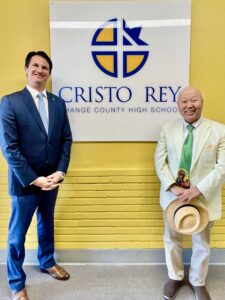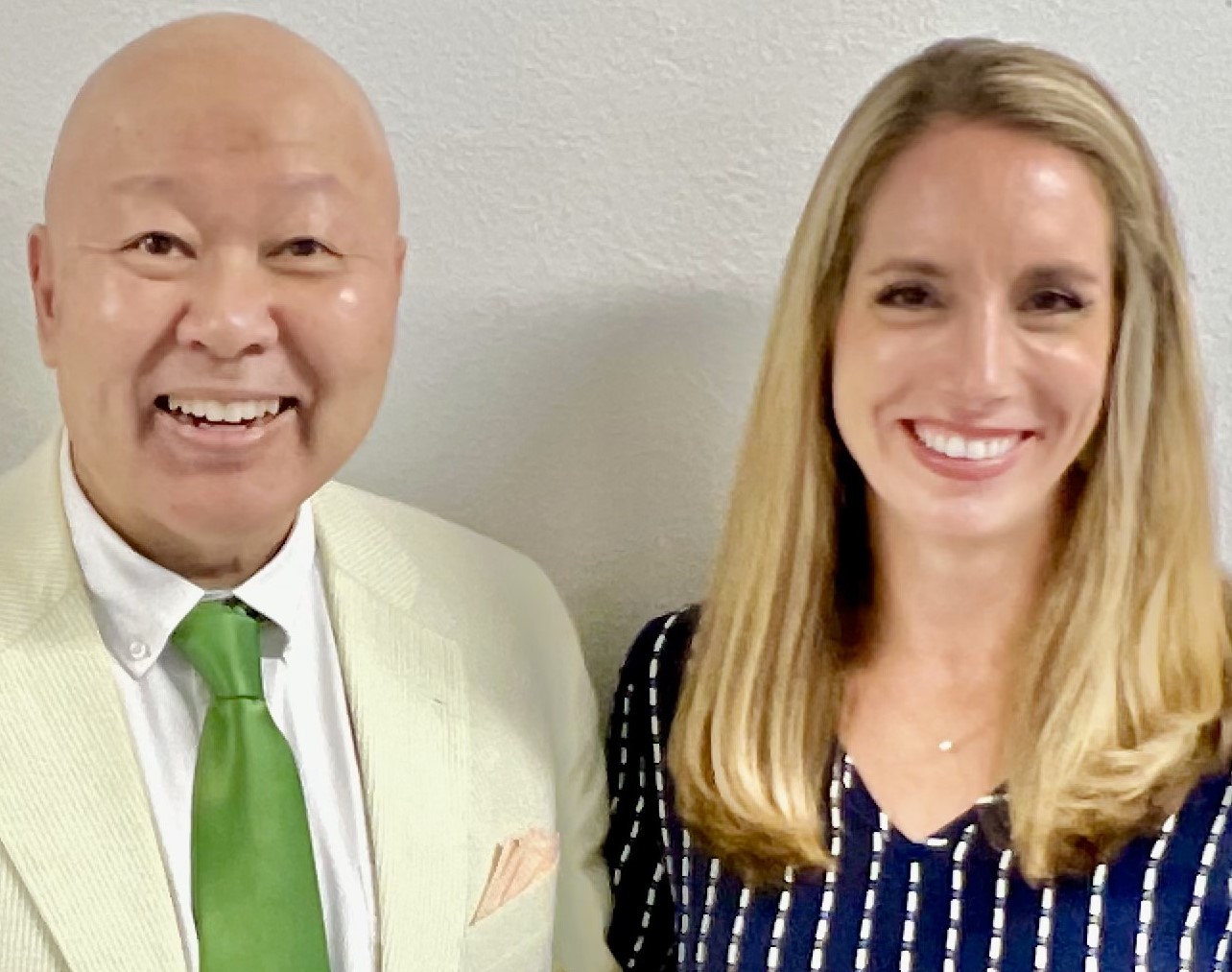I report on a lot of bad news about education in California, which is why it was so invigorating to attend the inaugural opening day of Cristo Rey Orange County, an innovative Catholic school that combines rigorous academics with a unique work-study program that has proved successful for countless students in Cristo Rey’s nationwide network of high schools.
The sky may have been grey on opening morning, but bright lights shone from the faces of the students at the ceremonies for Cristo Rey Orange County’s first day.
The school is located in working-class Santa Ana, where Hispanics make up three-quarters of the population. At Cristo Rey, virtually all the students are Hispanic and every student comes from a low-income family.

After inspiring welcome remarks by school president Steve Holte and principal Karelyn Roberts, students paraded through the school’s main corridor flanked by pom-pom-waving well-wishers, including the school’s board chair Tim Psomas and myself. There were smiles all around.
If the history of Cristo Rey schools is an indicator, these festivities presage a great educational experience for students at the Santa Ana campus and success after they leave the school.
Cristo Rey says that it “is the only network of high schools in the country that integrate four years of rigorous preparatory academics with four years of professional work experience through the Corporate Work Study Program.”
Specifically, Cristo Rey “places every student five full days a month in an entry-level, professional job all four years of high school.”
Through this work program, “Students earn a majority of their education cost while gaining real-world work experience that strengthens their cognitive and non-cognitive skill development, catalyzes confidence and aspiration, and prepares them for success in college and careers.”
The entry-level work opportunities for students are broad, with students performing “a wide range of responsibilities on the job, such as data entry, translation services, IT support, project research, marketing, talent acquisition and ERG support, and many other entry-level skills-based tasks.”
Every Cristo Rey school has at least 30 different corporate partners. At Cristo Rey Orange County, partners include the prestigious Latham & Watkins law firm, Children’s Hospital of Orange County, and Farmers & Merchants Bank.
Corporate partners pay an annual service fee to the school’s Corporate Work Study Program for the students’ college preparatory education. Whatever tuition costs are not covered through the Work Study Program are often addressed through scholarships.
Students work in four-person teams to fill one full-time equivalent position during normal daily business hours, Monday through Friday, for the entire academic year.
The work-study program has proven hugely beneficial to students.
Saul Hernandez, now a bank manager in Minnesota, served as a Cristo Rey work-study intern at the bank branch that he now manages. He learned about managing money, various bank products, and mortgage qualification requirements. The work opportunity that Cristo Rey afforded him opened his eyes and changed his life.
I was able to talk at length with Cristo Rey Orange County president Steve Holte in his office. He spent many years working at the Cristo Rey school in Chicago, where 90 percent of the families were headed by a single mother. The neighborhood was very violent and many students started at the school several years behind in the core subjects.

Yet, Cristo Rey’s great academics and work-study program combine to produce countless success stories.
Holte pointed out that 99 percent of students at Cristo Rey network schools are accepted into college and 89 percent eventually attend college.
One reason that students succeed is that Cristo Rey recruits outstanding teachers.
I chatted with Laura Machado Browne, an English teacher at Cristo Rey Orange County. She said that she had to undergo five interviews to get her job, whereas she had to go through just one interview at the previous Catholic school where she taught.
Browne had to do mock teaching in front of principal Karelyn Roberts. She also had to go to Chicago for a week of training in the Cristo Rey model of education.
Bottom line, she told me, “it is way more rigorous to get on the Cristo Rey faculty.”
All these efforts of administrators, teachers, and corporate partners are worth it.
Rishaun Hall, a 2016 graduate of the Cristo Rey school in Philadelphia and a policy associate at the Pew Charitable Trusts, says: “Cristo Rey has been the catalyst to everything that I have done professionally and academically. I found my passion at the age of 15 due to my first Cristo Rey student job placement and I have never looked back. I owe this institution my entire career.”
After meeting the great educators at Cristo Rey Orange County and learning about the school’s unique and innovative learning model, I have no doubt that the students at the Santa Ana campus will create their own stories of success.
Lance Izumi is senior director of the Center for Education at the Pacific Research Institute. He is a former two-term president of the Board of Governors of the California Community Colleges.

